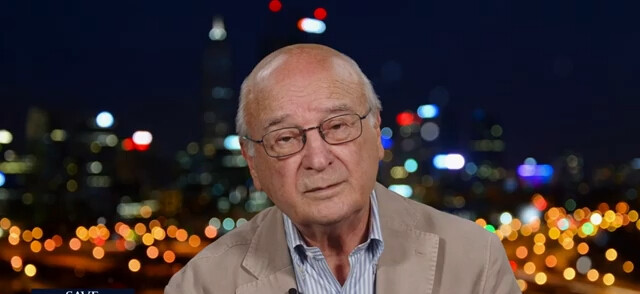Herodotus of Halicarnassus conceived of history as a collective act of cultural heritage preservation, an effort “to prevent the traces of human events from being erased by time, and to preserve the fame of the important and remarkable achievements produced by both Greeks and non-Greeks,” through opsis (firsthand knowledge), akoē (secondhand testimony), and gnōmē (analysis of findings). Historíai, in Greek, simply means “inquiry,” the search for truth, but it has come to mean so much more, allowing as it does for us to define ourselves, and to situate ourselves within the great stream of Time. G.K. Chesterton, in his essay “On Reading,” demonstrated how
The highest use of the great masters of literature is not literary; it is apart from their superb style and even from their emotional inspiration. The first use of good literature is that it prevents a man from being merely modern. To be merely modern is to condemn oneself to an ultimate narrowness; just as to spend one’s last earthly money on the newest hat is to condemn oneself to the old-fashioned. The road of the ancient centuries is strewn with dead moderns. Literature, classic and enduring literature, does its best work in reminding us perpetually of the whole round of truth and balancing other and older ideas against the ideas to which we might for a moment be prone.
The very same could be said of History, which is by its very nature an antidote to presentism, or at least it ought to be.
For more than a half-century now, poor Clio has been under a sustained assault by the forces of Marxism, post-modernism, post-structuralism, relativism, radical skepticism, and increasingly what Yascha Mounk has termed the “identity synthesis,” more commonly called “identity politics,” that amalgam of post-modernism, post-colonial theory, gender theory, and critical race theory that has corrupted so much of academia like pathogenic bacilli, leaving the “Queen of the Humanities” in so wasted and ravaged a state.
We were given ample warning, though. In 1994, Keith Windschuttle’s devastating critique of radical historical theories, The Killing of History: How a discipline is being murdered by literary critics and social theorists appeared in Australia, and a few years in the United States, published by Encounter Books under the slightly different title The Killing of History: How Literary Critics and Social Theorists Are Murdering Our Past. In The Killing of History, Windschuttle took aim at the “newly dominant theorists within the humanities and social sciences [who] assert that it is impossible to tell the truth about the past or to use history to produce knowledge in any objective sense at all.” Despite “all the present claims to the contrary,” Windschuttle maintained, “history can be studied in an objective way … there are no philosophical obstacles to the pursuit of truth and knowledge about the human world.”
Having calmly and methodically eviscerated the fashionable nonsense of academia, Windschuttle offered a prophetic warning about the potential effects of cultural relativism, and the notion that “Western ways of knowing do not deserve any privileged status.” The “return of tribalism,” he cautioned his readers, could only betoken a descent into “charnel house politics.” Indeed
A revival of cultural exclusiveness would mean a return to differentiating human beings on the basis of genealogical bloodlines, in other words, on racial grounds. If the history of the twentieth century has taught anything it is that the attempt to establish societies based on the latter is a sure road to catastrophe. Cultures based on religion, political principles or historical tradition always have the potential for accommodation with others. Cultures based exclusively on race cannot, by their very nature, do this. It is a great irony that the cultural relativist and multicultural movements gain most of their support from those people of European descent who want to avoid derogatory attitudes towards the people and cultures of other races. This is a very decent sentiment and one that derives from the basic principle of Wester liberalism that all human beings are equal. These people should be reminded that the first thing to be rejected by cultural exclusiveness, wherever it becomes entrenched, is the very liberal principle that led them to support it in the first place.
Or, as Roger Scruton — Windschuttle’s publisher, colleague, and friend — put it in his 1996 New Criterion review of The Killing of History, “This indeed is where the arcane theories of Derrida, Foucault, and their epigoni collide with the real world. They abandon the constraints of empirical truth in the name of liberation. But what they wind up with is not freedom but a new and more terrible servitude.”
Keith Windschuttle passed away on April 8, 2025, and is being laid to rest as I write these words, on April 24, in the Rookwood Necropolis in western Sydney. Had he only been responsible for The Killing of History, that would have been more than enough of an intellectual contribution for a lifetime, but he accomplished so much more, publishing books on topics ranging from the political economy of the news media to the fabrication of much Aboriginal history; founding the Macleay Press; serving on the board of the Australian Broadcasting Corporation; and serving as the editor of Quadrant magazine from 2008 to 2015, and again from 2017 to 2024. His final cause célèbre was a campaign in defense of Cardinal George Pell’s innocence, which ultimately resulted in the unanimous acquittal of the accused in Australia’s High Court, and in his last book, The Persecution of George Pell, published by Quadrant Books back in 2020.
As an occasional contributor to Quadrant since 2014, I had the good fortune of corresponding with Keith from time to time, and was always left with a warm feeling of encouragement and bonhomie. His comparison of one of my articles on Chinese cultural heritage to the works of the Belgian sinologist Simon Leys remains the most cherished compliment I have ever received. While it must sadly be admitted that we shall not look upon his like again, we can take comfort in his many achievements and build upon the foundations he laid during his long and productive life. He showed us how a historian, a real historian, should record the truth about the past, and speak the truth about the present, for only in doing so can we rescue ourselves from the “ultimate narrowness” that characterizes far too much of modern scholarship.
Plenus annis abiit, plenus honoribus.
READ MORE from Matthew Omolesky:
Some Ruminations on Natural History and Political Economy


![NYC Tourist Helicopter Falls into Hudson River, Siemens Executive and Family Among Those Killed [WATCH]](https://www.right2024.com/wp-content/uploads/2025/04/NYC-Tourist-Helicopter-Falls-into-Hudson-River-Siemens-Executive-and-350x250.jpg)







![Trump’s White House Trolls Illegal Alien Gangs With Hilariously Brutal Video [WATCH]](https://www.right2024.com/wp-content/uploads/2025/03/1742261427_Trumps-White-House-Trolls-Illegal-Alien-Gangs-With-Hilariously-Brutal-350x250.jpg)
![Red Sox Fan Makes the ‘Catch of the Day’ with Unconventional ‘Glove’ [WATCH]](https://www.right2024.com/wp-content/uploads/2025/04/Red-Sox-Fan-Makes-the-‘Catch-of-the-Day-with-350x250.jpg)





